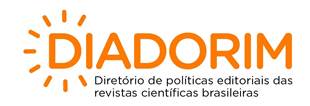Headache: a multifaceted public health challenge
Keywords:
Headaches, Public health, PreventAbstract
Background: Headaches pose a significant public health concern, affecting the quality of life of the global population and ranking among the top medical complaints. They manifest as symptoms of underlying structural or organic alterations, resulting from lifestyle factors, or as primary headaches with unknown etiopathogenesis. This multifaceted nature drives the problematic issue of self-medication, a practice that can lead to dependency and mask underlying conditions. Objectives: To understand the importance of addressing headaches to prevent exacerbations, mitigate public health burdens in Brazil, and preserve the well-being of patients presenting with this complaint. Methods: A search was conducted using the BVS (Virtual Health Library) with the descriptors "headache" and "symptom." Exclusion criteria included: (1) studies conducted in other countries; (2) articles that treated headache as a secondary topic; (3) non-article publications. Eight articles were selected after analyzing the results. Results: Six articles highlight the prevalence of headaches in medical practice, affecting up to 90% of the global population at some point in their lives and requiring urgent care in at least one episode. Thorough investigation is warranted when associated with meningitis, focal neurological symptoms of oculomotor paresis, cranial nerve palsy, hemiparesis, or loss of consciousness. The personal impact on academic performance, lost workdays, and public health consequences, such as healthcare costs and self-medication, are also discussed. Two additional articles address the inconclusive correlation between headache and temporomandibular joint dysfunction (TMJ), while acknowledging it as a common symptom. Finally, the importance of identifying red flags to rule out serious illnesses is emphasized. Conclusions: This study aimed to underscore the importance of attention to patients presenting with headache complaints. It concludes that due to the diversity of causes and effects, a comprehensive clinical examination should be performed for early detection of treatable conditions and to rule out serious illnesses. Non-pharmacological approaches are valuable allies in achieving favorable outcomes, and encouraging appropriate treatment seeking should be promoted to reduce self-medication practices associated with this condition.













